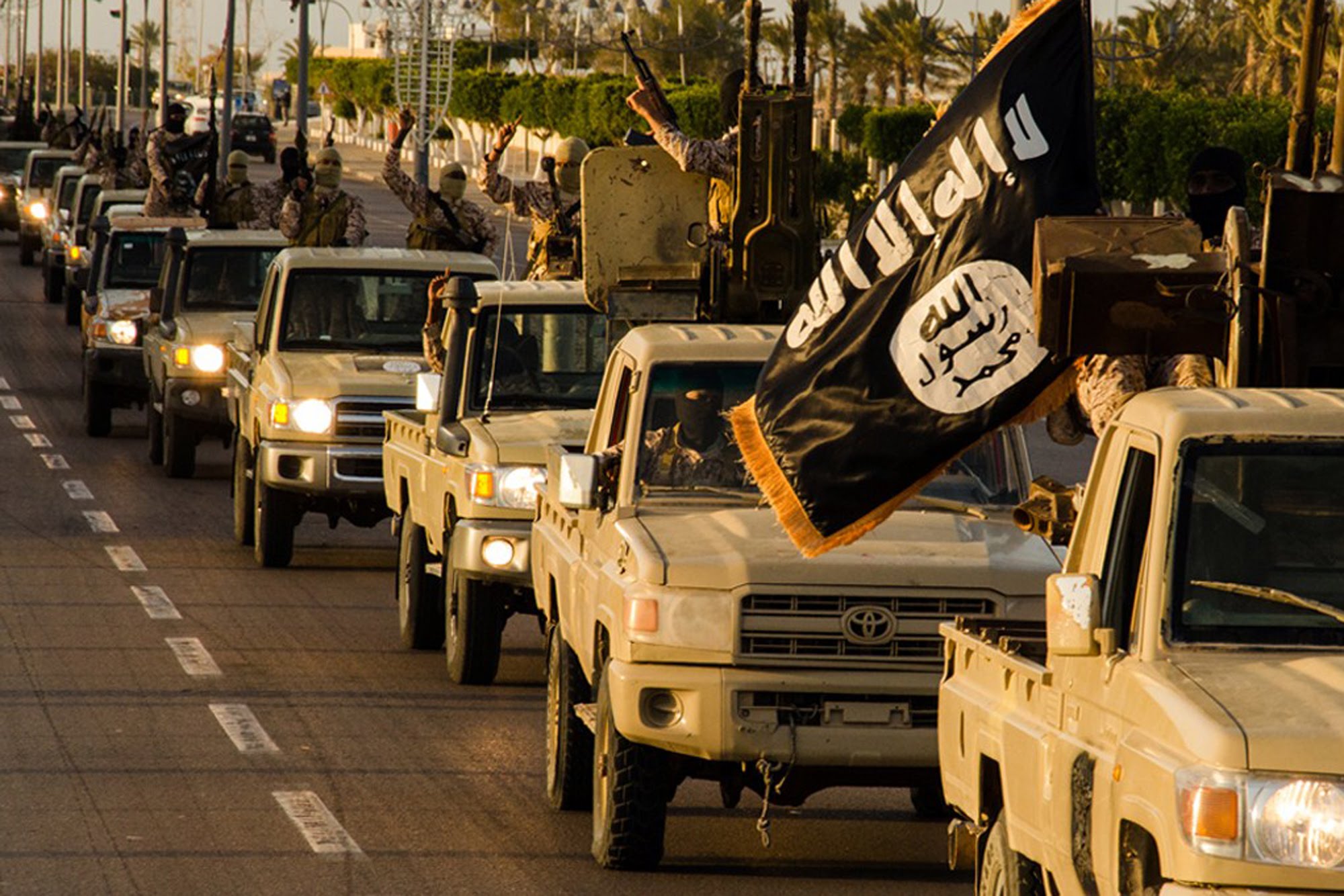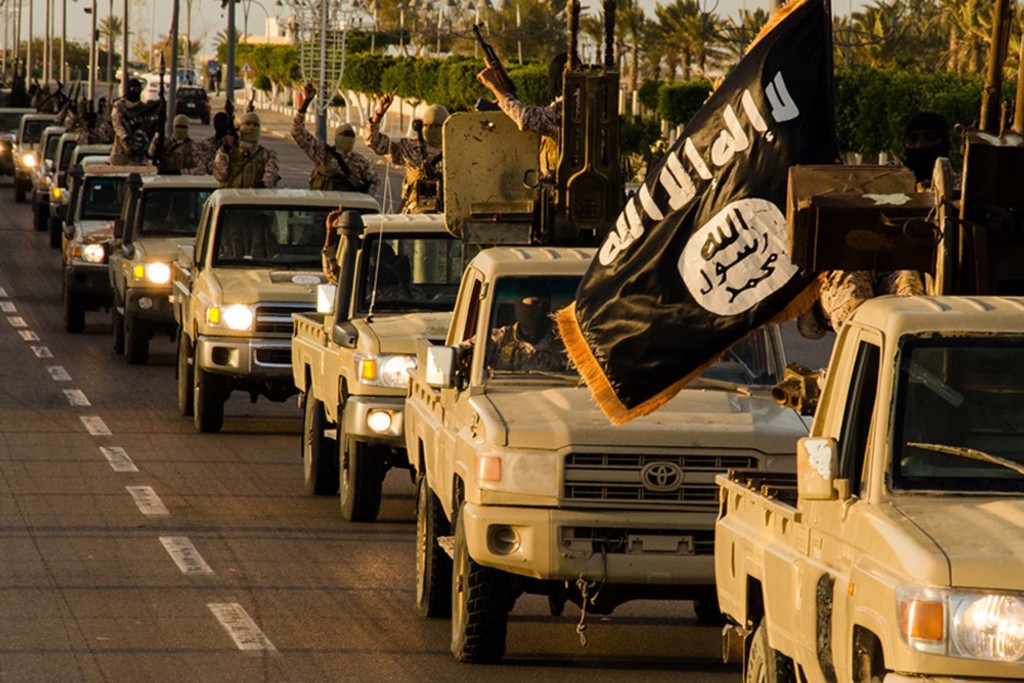By Eric Scmitt
The New York Times
The Islamic State’s branch in Libya is deepening its reach across a wide area of Africa, attracting new recruits from countries like Senegal that had been largely immune to the jihadist propaganda — and forcing the African authorities and their Western allies to increase efforts to combat the fast-moving threat.
The American airstrikes in northwestern Libya on Friday, which demolished an Islamic State training camp and were aimed at a top Tunisian operative, underscore the problem, Western officials said. The more than three dozen suspected Islamic State fighters killed in the bombing were recruited from Tunisia and other African countries, officials said, and were believed to be rehearsing an attack against Western targets.
Even as American intelligence agencies say the number of Islamic State fighters in Iraq and Syria has dropped to about 25,000 from a high of about 31,500, partly because of the United States-led air campaign there, the group’s ranks in Libya have roughly doubled in the same period, to about 6,500 fighters. More than a dozen American and allied officials spoke of their growing concern about the militant organization’s expanding reach from Libya and across Africa on rules of anonymity because the discussions involved intelligence and military planning.
Islamic State leaders in Syria are telling recruits traveling north from West African nations like Senegal and Chad, as well as others streaming up through Sudan in eastern Africa, not to press on to the Middle East. Instead, they are being told to stay put in Libya. American intelligence officials, who described the recent orders from Islamic State leaders, say the organization’s immediate goal is to carve out a new caliphate in Libya, and there are signs the affiliate is trying to establish state like institutions there.
“Libya has become a magnet for individuals not only inside of Libya, but from the African continent as well as from outside,” John O. Brennan, the director of the C.I.A., told a Senate panel this month.
The rising threat from Libya comes as President Obama is being asked by many of his top military and intelligence advisers to approve the broader use of American military force in Libya to open another front against the Islamic State, also known as ISIS or ISIL.
While administration officials have disclosed that Mr. Obama is mulling over how large of a military campaign to order for Libya, the new intelligence reports and the analysis on the spread of the Islamic State are energizing the high-level debate in Washington and allied capitals.
“The jihadist threat emanating from Syria and Iraq cannot be defused without addressing the growing danger posed by the terror groups’ co-conspirators in Libya,” Representative Devin Nunes, a California Republican who heads the House Intelligence Committee, said Friday.
Before resorting to any wider military action, however, the White House and Western allies like Britain, Italy and France are trying to help create a unity government in Libya. The goal is to use such a new central authority to rally dozens of fractious militias to fight against a common enemy — the Islamic State. American and European Special Operations forces could help advice and assist those militias, officials said.
“Our strong preference, as has always been the case, is to train Libyans to fight,” Mr. Obama said last week at a news conference in California. “There’s a whole bunch of constituencies who are hardened fighters and don’t ascribe to ISIS or their perverted ideology. But they have to be organized and can’t be fighting each other.”
As a result, the administration and its allies are taking several steps to prepare to train Libyan troops, should a newly formed unity government request such aid. They are also rushing to bolster pivotal African allies outside of Libya as a bulwark against Islamic State expansion on the continent.
The Pentagon has proposed spending $200 million this year to help train and equip the armies and security forces of North and West African countries. The United States is about to break ground on a new $50 million drone base in Agadez, Niger, that will allow Reaper surveillance aircraft to fly hundreds of miles closer to southern Libya.
Col. Mahamane Laminou Sani, Niger’s top intelligence officer, said in an interview that his country had increased its border patrols against the threat in neighboring Libya, and French troops stationed in Niger’s far north are doing the same.
“It’s a global threat that is not restricted by borders,” said Lt. Col. Moussa Mboup, a Senegalese Army operations officer who had trained in the United States and France. He spoke here during the Pentagon’s annual Flintlock military exercise with 1,800 African troops, United States Army Special Forces and other Western commando trainers, which ends later this month.
The Islamic State in Libya is now the most dangerous of the group’s eight affiliates, counterterrorism officials say. About half a dozen senior Islamic State lieutenants have arrived from Syria in recent months to build up the franchise, these officials say.
During training supervised by the United States military, Senegalese commandos practiced evacuating a wounded comrade.
New United States and allied intelligence assessments say that Islamic State commanders in Libya are seizing territory there, starting to tax its residents and setting up quasi-government institutions — mirroring the Islamic State playbook in Syria and Iraq.
“They’re trying to establish a statewide structure,” Brett McGurk, Mr. Obama’s envoy to the United States-led coalition fighting the Islamic State, told American lawmakers this month.


